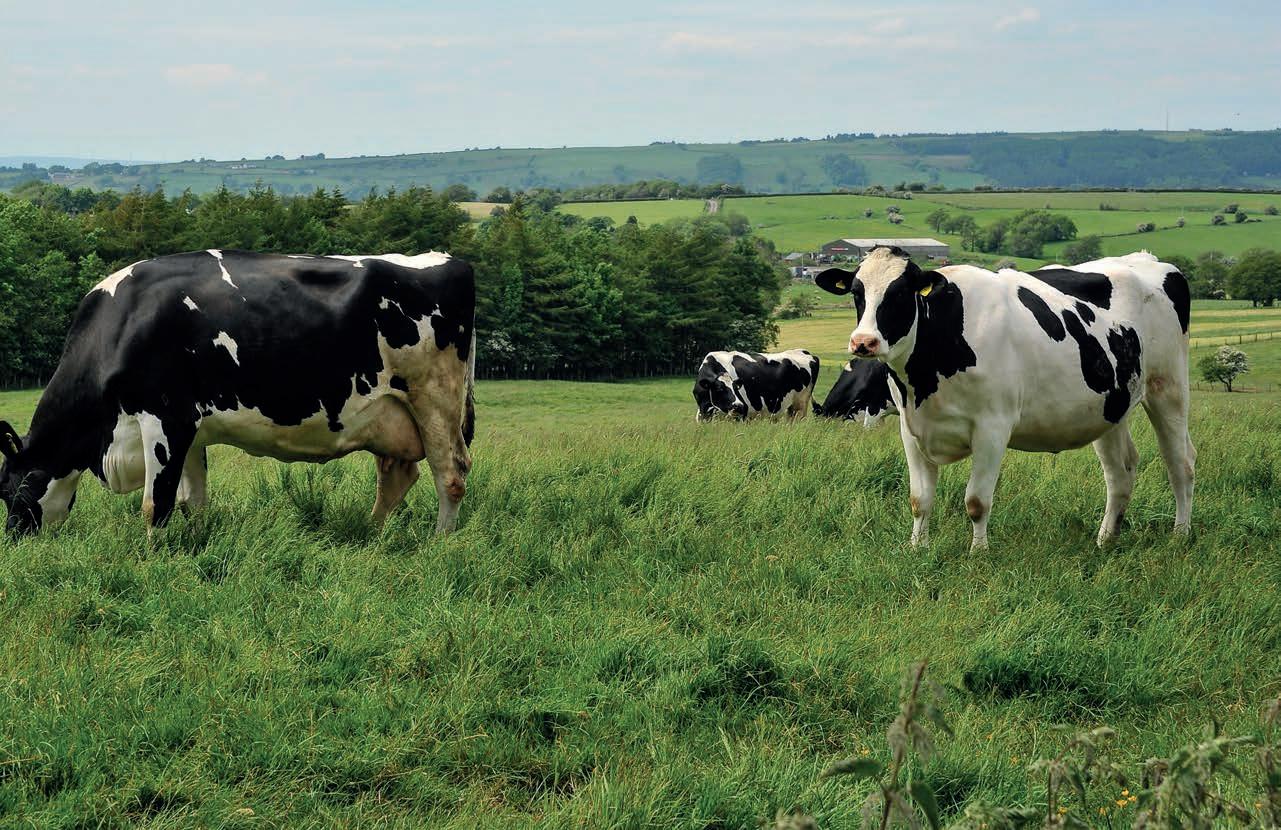
4 minute read
BUSINESS CLINIC
Farmers need to act now to prepare their businesses for the ending of direct payments and assess how they can mitigate the impact of these changes through other avenues. Cedric Porter takes a look at the advice farmers can access now to help with this.
Producers urged to sign up to free business advice
British dairy farmers along with their colleagues in other sectors are facing some of the biggest changes to their businesses in more than 50 years as the government embarks on a post-Brexit policy which sees the ending of direct payments.
To help farmers navigate the changes, Defra has launched the
Future Farming Resilience Fund, which gives farmers free support and advice. ere are 19 companies and organisations across England which have been commissioned to deliver one-to-one advice sessions as well as webinars and in-person events.
Farming Minister Victoria
Prentis says: “As we continue to co-design and develop the future schemes, it is important the industry has access to expert support and knowledge.
“So I urge farmers and land managers to sign up to the Future Farming Resilience Fund.”
Many of the organisations taking part are o ering on-farm visits from specialist consultants who will assess the business and then write a report, including benchmarking against other businesses and an impact assessment of the changes in support.
Kite Consulting is one of the 19 organisations o ering support.
Senior dairy consultant Rose Jackson says: “Dairy farmers will start to see reduced farm payments from this year, with an average farm losing about 1.7ppl by 2028 when direct payments will have disappeared altogether. is will inevitably in uence the bo om line and understanding that impact now
ROSE JACKSON
Reduction in direct English farm payments from 2021 Payment band 2021 2022 2023 2024
Up to £30,000 5% 20% 35% 50% £30,000-£50,000 10% 25% 40% 55% £50,000-£150,000 20% 35% 50% 65%
More than £150,000 25% 40% 55% 70%
Value of payments
2020 2021 2022 2023 2024
£5,000 £4,750 £4,000 £3,250 £2,500 £10,000 £9,500 £8,000 £6,500 £5,000 £20,000 £19,000 £16,000 £13,000 £10,000 £40,000 £37,500 £31,500 £25,500 £19,500 £80,000 £70,500 £58,500 £46,500 £34,500 £160,000 £134,000 £110,000 £86,000 £62,000 Supports tail off from this year
JFrom this year, English direct farm payments are due to be reduced, with final payments being made in 2027.
Defra has announced the proposed annual reduction from 2021 to 2024. So a farm which received £40,000 in farm support in 2020 will see that reduce by 55% to £19,500 by 2024.
Large payment will reduce proportionally faster than others. So a farm receiving £5,000 in payments will see a halving of support to £2,500 by 2024, but one receiving £160,000 will see a 70% reduction over the four years to £62,000.
The precise year-by-year scale of reductions from 2025 to 2028 has not yet been published.
Defra plans to offer farmers lump sum payments from 2022 where recipients can take the total value of their remaining payments (2022 to 2027) in one go allowing them to invest in the business or retire.
Those taking this option will receive no payments after they have been paid the lump sum. From 2024, Defra plans to delink payments removing the need to farm the land associated with the support to receive the funding.
will help you plan for the future. ere is likely to be a whole range of actions farms can take to mitigate the impact of the change, including involvement in the Environmental Land Management scheme which will reward farmers for environmental work they undertake.
Efficiency
“ ere may also be business changes which can be made, such as e ciency gains or increasing output, and there may be new diversi ed sources of income on-farm.”
She adds that the rst step is arranging a free one-to-one session with an adviser who will help farmers understand how to ‘bridge the gap’.
She says: “Following this, you will have the opportunity to join a free workshop where we will help you assess the impact of these momentous changes and plan for how your business can withstand them and grow in the future.”
As well as o ering business advice, the Prince’s Countryside Fund will be delivering environmentally focused workshops through a network of farm support groups.
Participants will also have access to online resources and follow-up workshops.
Executive director at the Prince’s Countryside Fund, Keith Halstead, says: “Our business and environmental skills training for farmers makes a demonstrable di erence to the pro tability and con dence of farm businesses.
“At this time of signi cant change in farming, we look forward to working in partnership with eight farm support groups in speci c areas to help those farms and those Free business advice in Scotland and Wales
JFarmers in Scotland have been able to access free farm business advice for a number of years. There is online support at fas.scot and a helpline on 0300 323 0161.
Farmers can also apply for one-to-one advice worth £3,700 through the service.
Farming Connect is the Welsh farm business service. It has online resources at businesswales.gov.wales/ farmingconnect.
The service runs regular free in-person and online workshops and demonstrations.
families who need support to make sure they can adapt and thrive.”
Consultants Promar International is another of the 19 organisations. It is using its national network of consultants to deliver the support.
Transition
Neil Adams, Promar managing director, says: “ e scheme will help you understand the changes which are happening as a result of the agricultural transition taking place.
“We will also help participants identify how, what and when they may need to adapt their business model with the opportunity to access tailored support to address these changes. e lessons learned from the scheme will feed into a secondary phase of free support which is due to run from 2022 to 2024.”










